I have used hot glue to fix broken glasses, to make enchanting glass arts, vases, and other glass projects over the years. With that experience, I have learned a lot when it comes to using different types of glues on glass. I will explain the most common question I get; can hot glue be used on glass?
Hot glue can be used on glass. This is because hot glue sticks on glass due to its structural makeup that offers a strong bond and a permanent stick. When the hot glue cools below its melting point, it offers a stronger bond that is durable.
There is so much to write about hot glue and glass, and also other glues or adhesives that can work on glass. By the end of this blog, you will have understood more about hot glue, and whether it is the best for glass, and also more options that are available.
I did a few tests which show how well hot glue does stick to glass. Read on for more.
Table of Contents
- 1 Will Hot Glue Stick on Glass?
- 2 Will Hot Glue Damage Glass?
- 3 What is the Best Glue to Use on Glass?
- 4 Will Hot Glue Peel Off Glass?
- 5 How Does Hot Glue Hold Underwater?
- 6 What Is Hot Glue Ideal for?
- 7 What Will Hot Glue Not Stick to?
- 8 What Kind of Glue Will Stick to Glass?
- 9 What Glues Dry Clear on Glass?
- 10 How long Does It Take for Hot Glue to Dry on Glass?
- 11 How Do You Bond Glass to Glass?
- 12 Why is it Hard to Bond Glass with Adhesives?
- 13 Final Thoughts – Can Hot Glue Be Used On Glass?
- 14 What Is Panda Glass | Ultimate Guide To Panda Glass
- 15 Can Heat Break Glass? Temperature & Fracturing Explained
- 16 Why Is Glass Polar? – Glass Polarity Explained!
Will Hot Glue Stick on Glass?
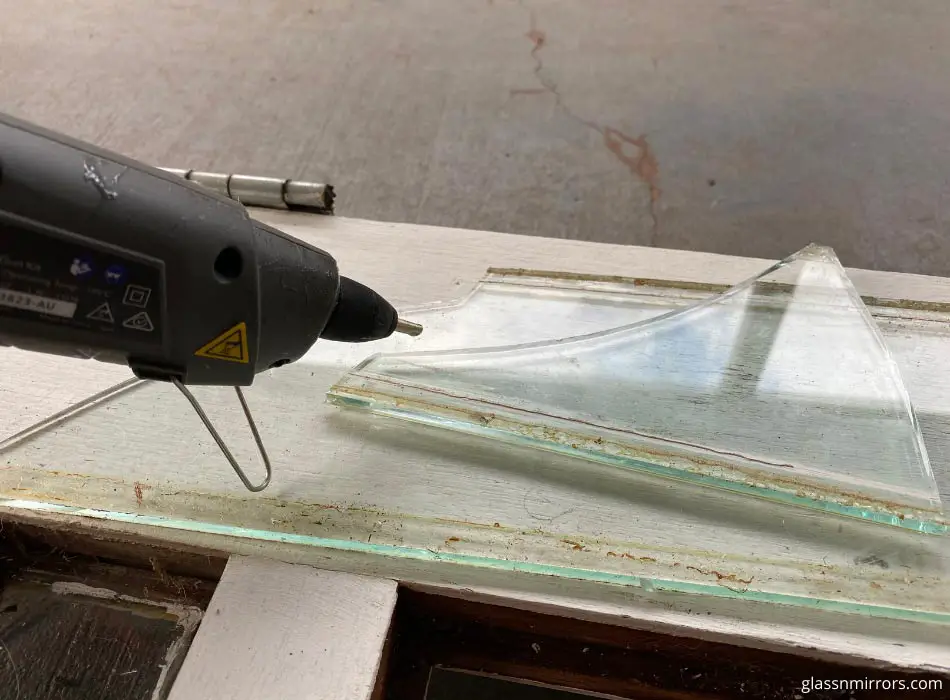
Hot glue sticks well on glass. The structural makeup of hot glue makes it ideal to bond just about any form of solid material. Hot glue, therefore, is an excellent adhesive to use on broken glass.
Owing to their physical form, load-bearing capability, chemical composition, and classification, glass adhesives can, indeed, help glue glass pieces together.
Hot Glue used on glass – See my experiment pictured.
For example, polymer-based glass glues commonly used during construction offer high-strength bonding. This type of glue has the right chemical composition to guarantee permanent elasticity. The fact that it requires moisture to set gives it superior ability where other glass glues may fall short.
Silicone is a very common glue used especially on fish tanks. Will silicone damage the back of a mirror? Read my article to find out more.
Common alternative adhesives like all-purpose liquid glue will not work on glass. At least not as well as hot glue can.
Standard hot glue sticks, on the other hand, will bond well to glass as I have shown in my experiments. However, choose glue sticks designed for jewelry as it offers a stronger bond that also works well on different materials including glass.
Alternative Glues for Glass That I Use – Click images to view more info
Note that standard hot glue sticks may bond well with glass initially. As time advances, however, they wear out. This makes such an adhesive only ideal for lightweight glass and not heavy-duty glass objects.
Specialty hot glue sticks like Adtech crystal clear glue sticks also have more grip and have specific variations that stick well on glass. This is irrespective of weather conditions or the weight of the glass objects.
Will Hot Glue Damage Glass?
Hot glue specifically designed to bond glass cannot damage glass. Provided you follow the instructions exactly as directed on the packaging, you should have an easy time piecing glass pieces together.
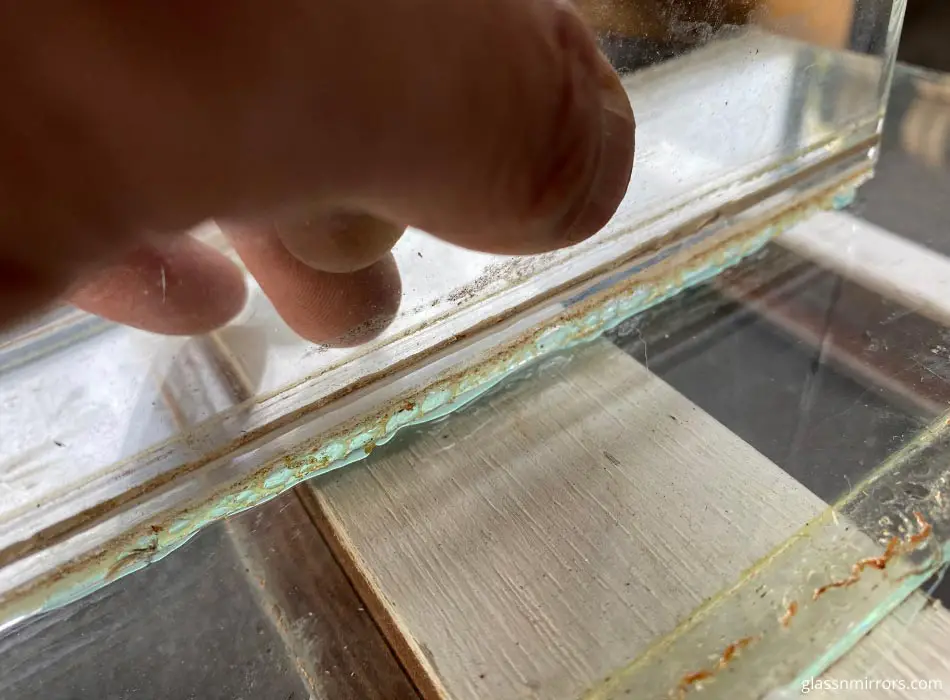
However certain other factors may contribute to glass damage.
Most glass bonding adhesives need to be heated up to about 375- and 450-degrees Fahrenheit. For glass to crack or shatter due to heat or increasing pressure, it must reach and surpass 302 to 392degrees Fahrenheit. Choose hot glue that requires low to medium heat. Adhesives that require extreme heating can cause delicate or thin glass to crack or shatter.
I used standard hot glue and it did not damage the glass.
Take hot glue sticks, for example. Hot glue sticks made for glass dry clear and keep your glass intact for longer. Poor preparation such as not using vinegar to clean the glass pieces you want to bond may limit the effectiveness of the adhesive.
In my experience, the hot glue turned yellow over time owing to reactivity with various compounds present in the air or in the cleaning agents I used. In other instances, the adhesive may gradually wear out leaving the glass pieces vulnerable to falling apart.
When I was keen on choosing the right adhesive for my project and did an excellent job to clean the glass fragments, the glass bonded well and didn’t suffer damage.
Can glass be turned back into sand? Read my article to find out.
What is the Best Glue to Use on Glass?
Adhesives whose chemical composition is specifically designed for glass are the best to use on glass. Epoxies, Polyurethane, and Polyimide adhesives are the best to use on glass.
Hot glue, Thermosetting glue, and reactive hot melt glue, all fall in the category of adhesives whose structure is designed to bond glass. These are also excellent alternatives to use on glass whenever the above options are not available.
I got standard hot glue to stick to dirty old glass
that was aprox. 6mm thick. It stuck very well!
The best glue to use on glass can be applied on clear, stained, colored, or tinted glass. These glues give clean results and are simple to use. With the right tools and skills, you will have no messy residue on your glass surface and work area.
Will Hot Glue Peel Off Glass?
Hot glue will not peel off glass easily because its main function is to bond glass pieces. Hot glue is structurally designed to bond different materials like plastics, wood and glass permanently. Using a hot glue gun allows the glass glue to spread and cure quickly creating lasting results.
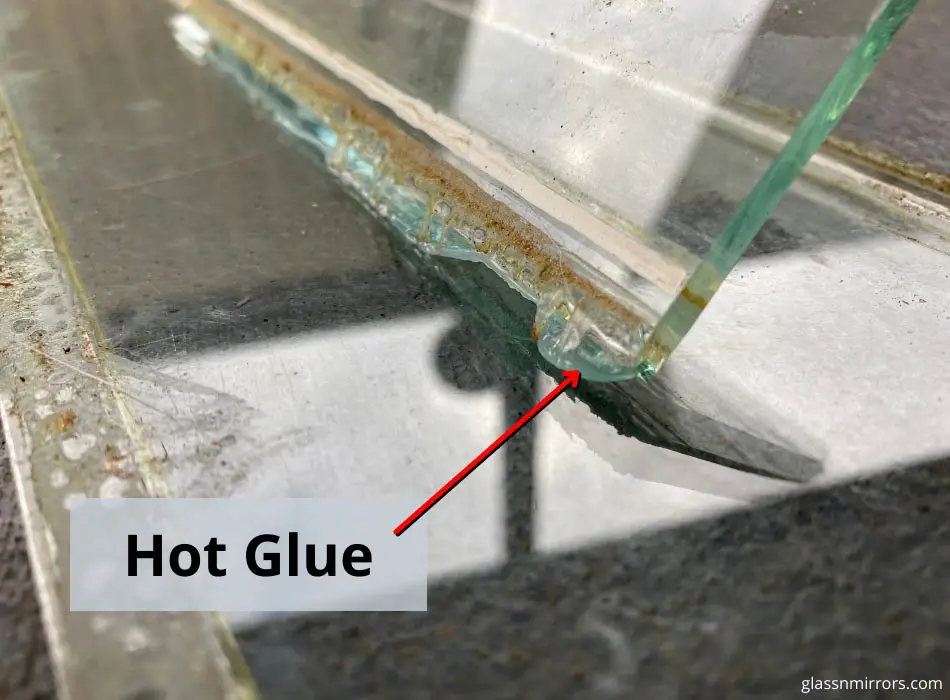
I found the hot glue was quite hard to peel off but I did eventually get it all off.
In instances where you have used excess hot glue or want to re-bond glass pieces. You need special liquid agents to help break down the chemical composition of hot glue. In this case, Alcohol or isopropyl alcohol are the two common agents you can use to peel off hot glue from the surface of non-porous materials like glass, plastic, or metal objects.
Hot glue may also peel off a surface that was not appropriately prepared for bonding. Usually, you are required to clean the glass surface using vinegar. Wait until the vinegar completely dries before applying the adhesive for lasting results.
If the surface is wet or full of residue, the hot glue will bond for some time before it slowly begins to peel off.
How Does Hot Glue Hold Underwater?
Irrespective of the ‘waterproof’ tag that comes with various hot glue packaging, no hot glue is 100% suitable for use underwater.
A specific requirement here is that hot glue first melts before solidifying to bond two or more glass pieces. Some hot glues can bond glass underwater but the results will not be as successful as is the case on dry surfaces.
What Is Hot Glue Ideal for?
Hot glue is ideal for filling gaps and bonding smooth or rough-edged surfaces. Owing to its high viscosity, hot glue can be used on numerous porous and non-porous surfaces. Its superior bonding capabilities work well on both even and uneven surfaces.
Achieve crisp, longer-lasting results when bonding materials like wood, glass, or plastics using hot glue. Hot glue is ideal for high-strength applications and is weatherproof.
Ever wondered why phone screens are made of glass? Read here to see why.
What Will Hot Glue Not Stick to?
Hot glue cannot stick to glossy, smooth surfaces made of silicone, metal, vinyl, or wax. Also, if the surface is wet or covered with grease, the hot glue will not bond successfully.
What Kind of Glue Will Stick to Glass?
There exists a variety of adhesives designed to stick to glass. Below is a simple table that highlights different kinds of glue and how they stick to glass.
| Types Of Glue | How It Sticks To Glass |
|---|---|
| Silicone Adhesives | These are liquid or gel-like adhesives that are applied to the surface you want to bond. |
| Hot Melt Glue | Hot gun glues require the use of a glue gun to heat the adhesive up to the right temperatures to make it stick to glass. |
| Epoxy | This is a no-melt adhesive that fits well in various applications including glass, wood, plastics, and so on. |
| Super Glue | Also known as Cyanoacrylate, super glue is a common adhesive that works well on a variety of surfaces. It is waterproof and ideal for bonding lightweight glass pieces. |
| Thermosetting | Here, resin and hardener are mixed together to make a glue that can perfectly stick glass pieces together. |
What Glues Dry Clear on Glass?
Hot melt glue, Superglue, Polyimide, Epoxy, Thermosetting, and Polyurethane adhesives are a few examples of glues that dry clear on glass. These glues are easy to apply and dry super fast. They are waterproof and create a lasting bond with clean finishes.
How long Does It Take for Hot Glue to Dry on Glass?
Hot glue dries to touch within 15 minutes. It is, however, recommended for you to give it 24 hours before testing the glue for joint strength.
Avoid touching the glue with your bare hands shortly after applying because you can be burnt.
Debris, moisture, and air bubbles may extend the drying period. If you follow all the instructions as per the user manual, the hot glue should dry within the prescribed duration.
How Do You Bond Glass to Glass?
Owing to the delicate nature of glass objects, care, precision, and the right skill are imperative to the successful bonding of glass-to-glass pieces. To bond glass to glass, you must;
Find the Right Glue
The type of glue you choose depends on the use and nature of glass pieces you want to piece together. There’s a wide variety of adhesives made to stick from glass to glass. They include,
- Hot Melt Glue-This type of glue is the best for bonding glass and almost all other solid materials. Holt melt glue is eco-friendly, has a long shelf life, and guarantees clean results.
- UV Acrylic Resins-Should you need to bond many tiny pieces of glass; this type of glue can guarantee a clean repair. This, provided you have a UV lamp which is required to set the glue.
- Silicon-Based Adhesive-This glue is strong, transparent, and waterproof. It is an ideal choice for bonding small-sized lightweight glass pieces.
- Epoxy Adhesive-This type of glue can tolerate high temperatures and solvents that would easily corrode other glue types and materials. Epoxy adhesives are incredibly strong and ideal for bonding all types of glass.
- Load-bearing adhesives-heavy glass requires glue that has high bonding capabilities, enough to hold heavy glass pieces together. Load-bearing adhesives here do a good job of bonding heavy glass irrespective of weight.
- Adhesive Pastes-Owing to their limited viscosity, adhesive pastes do not work well with most materials. When bonding glass to glass, adhesive pastes allow you to fill in gaps.
- Polyimide adhesives-This type of glue does extremely well in extremely high temperatures and is chemical resistant. It’s ideal for pairing glass to glass or bonding glass to other solid materials.
Consult an expert to find out the best glue type to use for your specific purpose.
Clean the Glass Pieces
Thoroughly clean the glass pieces you want to bond using clean soap and water or vinegar. Wipe each piece with a clean dry cloth until completely dry. Ensure that the glass pieces are dry, oil-free, and free of other residues.
Put on latex gloves to avoid oil, sweat, or dirt on your hands from getting on the glass. Not to forget, gloves work as a safety measure to keep your finger from harm caused by toxic, hot, or messy adhesives.
Apply The Glue
Carefully apply glue on the glass edges. Here, a little goes a long way because most adhesives have high viscosity.
If using hot glue, the cold surface of the glass will start making the glue go hard. I suggest doing smaller joints with hot glue for this reason.
Join the Pieces
Press each glass piece with glue onto the next glass piece. Ensure that the two glass pieces are aligned to avoid any gaps between the pieces. Hold and press the pieces together for about 30 seconds to a minute to allow the glue to settle and solidify.
Remove the Excess
If after the glue has settled there’s excess glue bulging from the sides, use a razor to scrape off the excess glue.
Why is it Hard to Bond Glass with Adhesives?
Glass is nonporous, meaning that, its smooth surface does not absorb air or liquid. This is what makes it extremely difficult to glue together.
Glues that are labeled “suitable for glass” start to peel off a short period after application. This happens when you choose the wrong glue for your project.
Say, for example, you’re looking for glass glue to help piece a broken glass jar together. This glue will give you excellent results on the glass jar but not so much when the same is used to repair broken glass windows. This is because it doesn’t have the load-bearing capability to accommodate too much weight.
A few expert tips to avoid facing challenges when bonding glass include;
- Choosing the right glue for glass. There’s a wide variety of hot melt and non-hot melt glues you can use to glue glass pieces.
- Thoroughly clean the glass pieces you want to join together.
- Sand the glass edges to create traction for the glass glue to bind.
- Even after applying the glue, continue to hold the glass pieces in position. This offers support giving the adhesive enough time to dry. Use wood pieces, painter’s tape, or sand to support the glass.
- Use rubber gloves instead of your bare hands. Rubber gloves offer control and protection. You can better apply glue and hold the glass pieces with a glove than without. Also, rubber gloves can protect you against accidental cuts from the gloves and keep you from getting the glue on your skin.
- Patience and precision. Most glues require time to cure. Failure to allow the bonded glass to cure is setting yourself up to work on the same piece again. Work on each big glass piece at a time or a couple of glass pieces at a go.
Final Thoughts – Can Hot Glue Be Used On Glass?
The hot glue variety you choose should be strong enough to give you a water-tight bond and should not snap due to multi-directional pressure. It should keep the glass intact for years and years.
To successfully bond glass pieces, you must accommodate the weight of the glass and exposure to environmental changes. Finding the right adhesive is no easy fit. You want to use glue that can adapt well to whatever external conditions while simultaneously remaining invisible and giving you flawless results.
Whether you are looking to complete a DIY project, repair broken glass, or work on completing a school project, above is all the information you’ll need to use hot glue and other appropriate adhesives on glass.
-
What Is Panda Glass | Ultimate Guide To Panda Glass
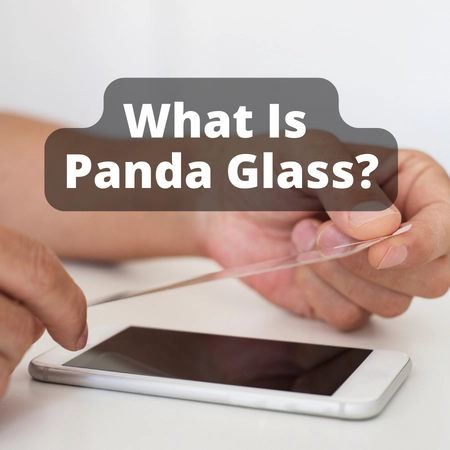
When looking for a new phone case, you may have encountered the term “panda glass.” A variety of phone cases on the market use this type of glass. But what … Keep Reading
-
Can Heat Break Glass? Temperature & Fracturing Explained
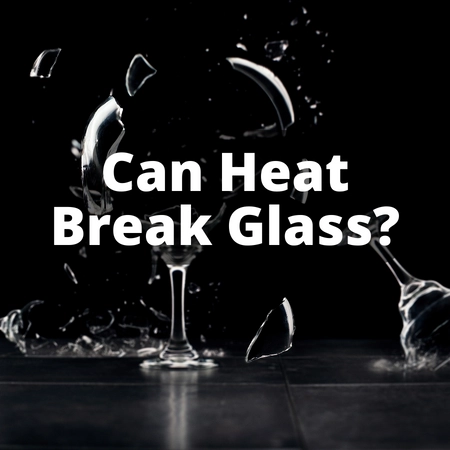
Even though technology has improved, you may have heard of a glass door suddenly breaking with a loud pop and a smashing sound. There have been many reports of windows … Keep Reading
-
Why Is Glass Polar? – Glass Polarity Explained!

You may have heard the term “polar” used when discussing glass. But what does that mean? And why is glass polar in the first place? The difference between the electronegativity … Keep Reading

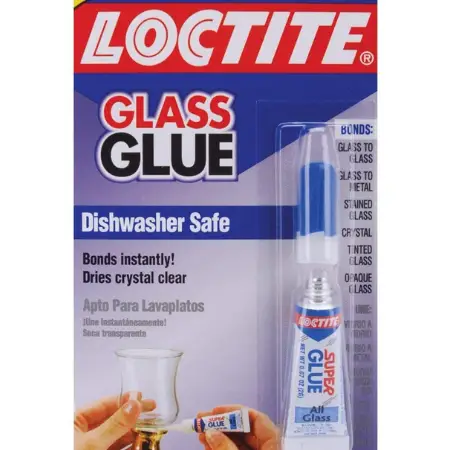
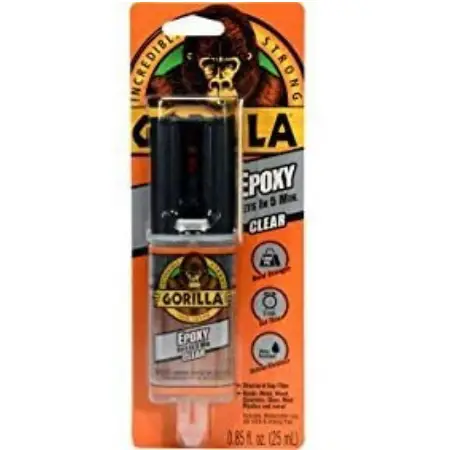
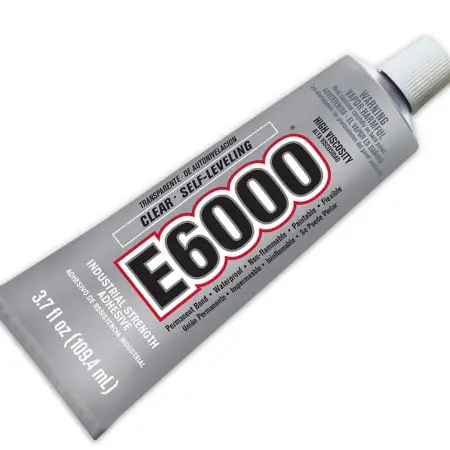
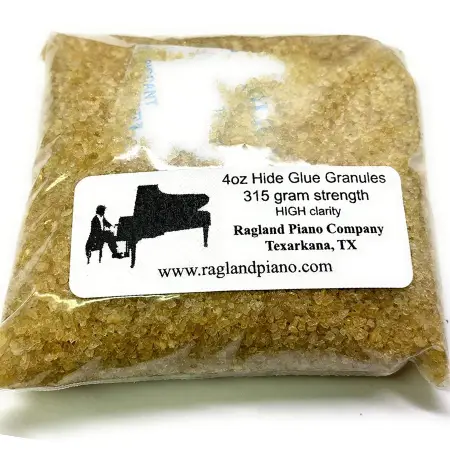
2 thoughts on “Can Hot Glue Be Used On Glass – I Tried It”
Comments are closed.